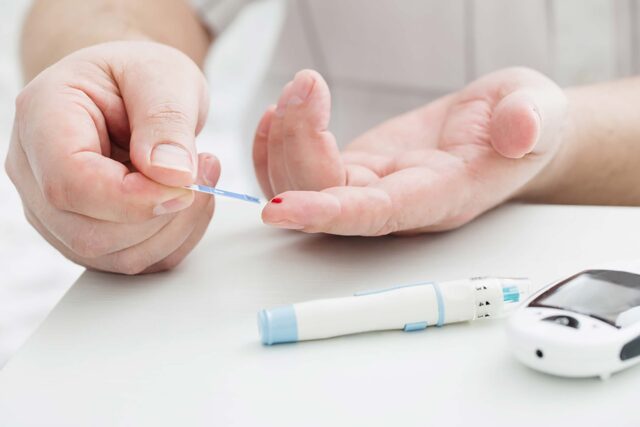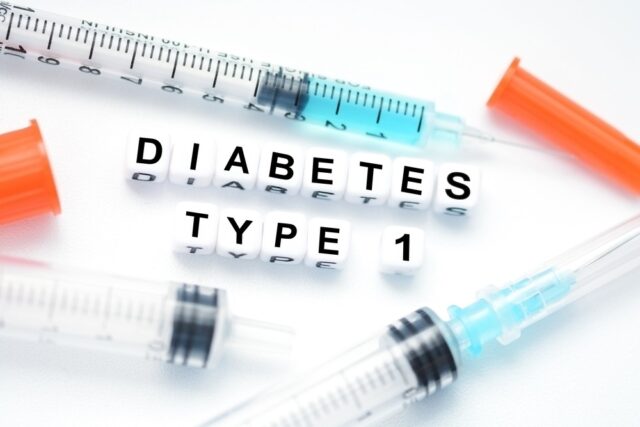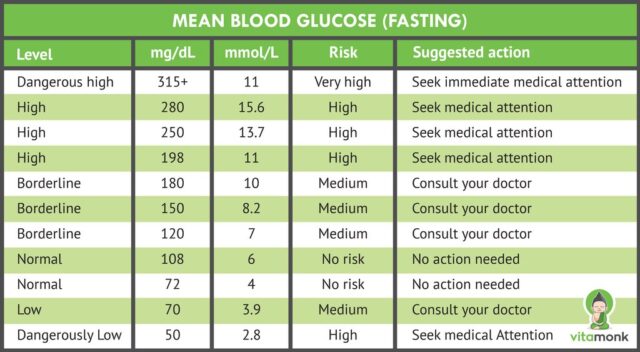
Although both type 1 and type 2 diabetes have similar effects on the body, there are noteworthy differences between the two. From cause to the age group affected the most, the differences in diagnosis and management are clear.
There are other types of diabetes in the mix, including Gestational diabetes and Maturity onset diabetes of the young (MODY), which make the differences confusing for the general public.
Type 1 vs Type 2 – The Basics
To begin with, type 1 diabetes accounts for 5% to 8% of all cases while 90% of all diabetics suffer from type 2 diabetes.
1.Type 1 Diabetes

In diabetes type 1, the body produces little or no insulin, giving rise to the need for insulin injections. It is also called insulin-dependent diabetes or juvenile diabetes since most of the patients are diagnosed before they turn 20.
However, it can occur at any point in life and is not age or gender limited. It is an autoimmune condition in which the body attacks its own insulin-producing cells (called islets of Langerhans), which leads to little or no insulin in the bloodstream.
The cause of type 1 diabetes is currently unknown, but it is thought to be genetic. Unlike type 2 diabetes, the onset of type 1 is not affected by your lifestyle or weight. The symptoms appear quickly and can be managed by insulin injections.
As with most auto-immune diseases, type 1 diabetes cannot be currently cured, but with more research, some other lines of treatment may be discovered.
2. Type 2 Diabetes

Type 2 is developed over a period of time when the body cells slowly stop responding to insulin present in the blood. You can think of it as having a broken key to a lock. While the age of diabetes onset may vary, there are some factors that may put you at a greater risk of developing this disease. The factors may include:
- Family history
- Ethnicity (eg. South Asians over the age of 25 are at higher risk)
- Age group (over 40)
- Weight (overweight or obese)
Today, type 2 diabetes is becoming more common in younger people as well. The exact causes of this disease are not known but it is thought to be a result of insulin resistance developed over time.
Unlike type 1 diabetes which requires the use of insulin, type 2 can be managed with medication, diet, and exercise as well. In fact, there is evidence that type 2 diabetes can go into remission in some cases. It can be prevented in many instances.
Symptoms of Type 1 and Type 2 Diabetes

The symptoms of both types are common. But the difference is in their occurrence. While the symptoms for type 1 diabetes appear quickly, the signs of type 2 diabetes take time to develop. This makes type 2 diabetes harder to diagnose.
Here are the symptoms that you should keep an eye out for:
- Increased urination
- Increase in thirst
- Unexplained weight loss
- Thrush
- Genital itching
- Blurry vision
- Wounds and cut take a longer time to heal
- Unexplained increase in tiredness
If these symptoms are ignored for long, they can give rise to severe complications in the long term, including diabetic ketoacidosis (DKA). This is especially the case with type 2 diabetes which can go unnoticed up to 10 years.
Also, while there is no definitive cure for either of the two types, it has been reported that type 2 diabetes can go into remission in some cases.
Treatment for type 1 and type 2 Diabetes

Type 1 Diabetes
During the treatment of type 1 Diabetes, individuals need to be focused on various elements. In case you are not able to manage type 1 diabetes, then you should be carefully. Firstly, you need to follow all the instructions of doctors in a perfect manner. In case you do not follow the doctors’ advice, then it becomes difficult to get better results and treat the health issue easily and perfectly. The following factors can help you in understanding some facts about the treatment of type 1 diabetes.
- Eating healthy foods
- Taking insulin
- Carbohydrate, protein counting and fat
- Regular exercising and keeping body weight perfect
- Regular checkup and tests for blood sugar monitoring
These are some major steps that can be taken for getting better results and making things easier. If you are not capable of working on all these factors, then you may not get a solution to type 1 diabetes. Insulin is the most effective and biggest solution to these issues. Everyone should try to make sure, they are taking required amount of insulin as per the doctor’s prescriptions or you can visit here.
There are different ways or sources available for taking insulin and treating health issues perfectly. Mainly these ways are – injections and insulin pump. The selection of the method is based on the consent and comfort level of a patient.
Type 2 diabetes
When it comes to management or treatment of type 2 diabetes, then you can see lots of options there. Mainly these options can help you in getting positive effects quickly. Following are some major ones.
Weight loss

By losing weight, the interested ones are capable of working on all over the body condition. It leads to some positive effects by decreasing the level of sugar in the blood. As a result, the treatment of diabetes is becoming easier and much effective.
Healthy eating

Diabetes patients need to be focused on their diet perfectly. While consuming the food, you should check out the following factors.
- Intake fewer calories
- Avoid refined carbohydrates such as – sweets
- Try to avoid food with saturated fats
- Consume more food with fiber
- Eat more fruits and vegetables
It will help you in treating diabetes effectively.
Other methods

With all these things, type 2 diabetes can be treated by paying attention to physical activities. Another important thing is related to the regular monitoring of blood sugar level.
Conclusion!
Diabetes, regardless of its type, can be a frustrating ailment to work with. But with proper intervention and management, living a long, comfortable life is a real possibility.














